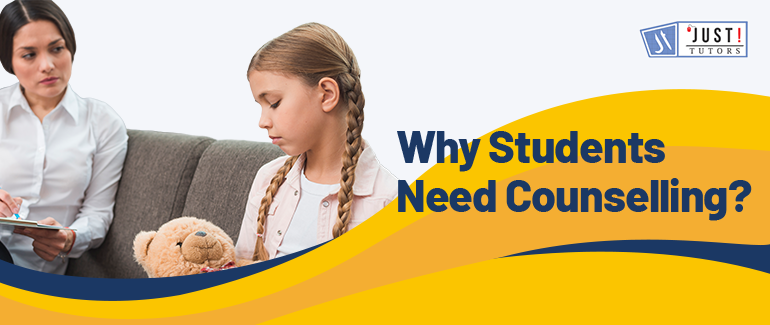The increasing complexity of modern life have given youngsters additional obligations. They demand talents and abilities that were not necessary in the comparatively basic civilization of the past. They require skills and competences in self-awareness, social and emotional development, academic improvement, mastery of accessible knowledge, and the ability to seek out suitable information in order to advance in their chosen vocations.
You’ve probably seen that there are instances when students don’t pay attention in studies, don’t answer at all, and are even aggressive. There are also times when kids fall behind in their studies, their academic success is dismal, and to make matters worse, they lack drive and concentration. Furthermore, they are unable to make a decision when it comes to choosing a subject for advanced study. Also Read: How Do You Teach Small Children To Be Responsible?
The aforementioned issues might be the result of misalignments in physical, emotional, social, moral, and spiritual growth. Guidance and counselling play a supportive role in the educational process by guiding and managing activities in order to assist each student reach his or her maximum potential.
Counselling has a significantly different connotation in the professional sense than it does in the common one. For the layperson, it implies giving counsel, making a proposal, making a recommendation, or delivering information. But professionally, counselling is the scientific process of assisting a person in better understanding himself or herself in connection to his or her surroundings so that he or she may become self-reliant, self-directed, and self-sufficient and live a more fulfilling life.
Counselling is to assist an individual in resolving current difficulties, avoiding future problems from occurring, and increasing personal, social, emotional, educational, and occupational development. As a result, counselling contains rehabilitative, preventative, and developmental components.
Many people believe that counselling is a cure-all for all issues, but this is not the case. Individuals have a wide range of expectations for counselling, many of which are unreasonable.
This results in disappointment. The cause of this dilemma is a lack of awareness of what exactly the aims of counselling are. The following are some of the key goals of counselling that most counsellors agree on:
1) Achieving a state of good mental health
When a person is able to connect meaningfully with people and live a rewarding life, he or she is considered to have positive mental health. He or she is capable of loving and being loved. One of the goals of counselling is to assist the individual in achieving this condition.
2) Problem resolution
Counselling may also assist an individual in overcoming a challenging circumstance or problem. It is important to remember that the individual is simply supported and must solve the difficulties on his or her own. Learn: How To Make Your Kids Get Better At Understanding Concept
3) Guidance in making decisions
The ability to make sound and timely judgments is essential for personal success. One of the main goals of counselling is to enable the client to make their own decisions. The counsellor can help the individual by giving vital information or explaining the counselee’s aims, but the counselee must make the final choice.
4) Increasing one’s own effectiveness
A productive individual is capable of controlling urges, thinking creatively, and recognizing, defining, and solving challenges. As may be seen, these various objectives are not mutually incompatible. All of these are interconnected and overlap.
5) Assisting with change
Change is always required for progress. Counselling assists people in changing their attitudes, views, or personalities.
6) Behaviour modification
Another goal of counselling is to assist with behaviour change. For achieving efficacy and excellent adjustment, it is deemed important to eliminate undesired or self-defeating behaviour and develop desirable behaviour. The main proponents of this viewpoint are behaviourally oriented counsellors.
As a result, to the extent that his or her talents and circumstances allow, a student becomes his or her own teacher. As a result of this achievement, those effective behaviours are reinforced and retrained, resulting in a modified way of life.
Thus, counselling entails (a) assisting the student in self-appraisal, i.e., identifying his or her interests, motives, and capabilities, (b) assisting him or her in planning a course of action that takes advantage of the identified capabilities and potentialities, and (c) finally, establishing an adaptive life style.
Read more related article:
- How to give your Children effective feedback?
- How to Develop Interpersonal Communication Skills in Kids
- How Do You Teach Small Children To Be Responsible?
- How to Manage Screen Time for your child
- How to Speak Confidently In Public- A Guide
- Correct Sitting Posture to Avoid Health Issues

